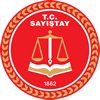Functions of the TCA
Audit Function
The TCA carries out regularity (financial and compliance) and performance audits. Financial audits consist of an evaluation and an opinion on the accuracy of public administrative bodies' financial reports and statements, and whether or not those bodies' financial decisions and transactions and any programs and activities are compliant with the law. The auditors also evaluate the auditees' financial management and internal control systems.
Compliance audits take the form of an examination whether auditees' revenue, expenditure, assets and other accounts and transactions comply with the law and other legal arrangements.
In performance audit, the auditors evaluate whether or not public resources have been used effectively, efficiently and economically. They also assess auditees' activities against the goals and indicators which the latter have set with regard to accountability.
Judicial Function
TCA is a supreme audit institution, which performs audit on behalf of the Parliament with the aim of ensuring the power of the purse and has judicial authority.
Judicial reports concerning the public losses detected in the course of audits are decided on by the chambers of trial, each of which is a court of accounts. There are 8 chambers in the TCA. The final decision body of the writs issued by the chambers is the Board of Appeals of the TCA. Appeal is possible against the decisions of the chambers. Office of the Chief Prosecutor of the TCA takes part in the trial process, as well.
Judicial reports are prepared and inquiries are initiated in case that the following are detected during the audit of the accounts and transactions of the public entities:
- A decision, transaction or action against the legislation,
- A public loss resulting from a decision, transaction or action against the legislation,
- Determination of the public officer leading to this public loss,
- A connection between the public loss and the decision, transaction or action of the determined public officer against the legislation.
Inquiries are notified to the public officers held responsible and their defence statements are taken in the legal period. Provided that the audit team maintains the same conviction on the public loss and responsibility after they assess the statements, judicial report is prepared and sent to the relevant chamber for the initiation of the trial process.
Activities Related to TCA’s Authority of Delivering Opinions
TCA delivers opinion on the financial regulations issued by the public entities within the scope of the general government as well as the regulatory processes in the nature of regulations. While 180 opinions were delivered on these matters in 2017, the number of opinions delivered in 2018 is 137.
Guidance
TCA implements a three-phase systematic method with the aim of creating a better public administration, facilitating the functioning of the public entities and strengthening their institutional structures.
In the first phase, functioning of the internal control systems of the public entities and their situations in financial management and performance management are assessed through the answers given to certain questions uploaded in the SayCap Audit Management Program by the audit teams during the audits carried out by the TCA. By this means, public entities are assessed in terms of internal control, financial management and performance management.
In the second phase, within the scope of the classification of findings carried out by the TCA, annual audit findings concerning the public entities are classified in detail, and the deficiencies and weaknesses of each public entity in the abovementioned systems are determined. Classification of findings informs the TCA about the areas which the auditors should focus on in the audit of a specific public entity.
In the final phase, TCA monitors the issues detected in the audits and use the data obtained from monitoring to shape the audit plans of the next year. Thanks to this system, TCA can determine the focus of audits for improving the internal control, financial management and performance management systems of the public entities and can also plan trainings for the improvement of these systems through its findings.
